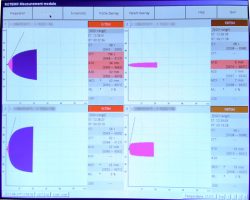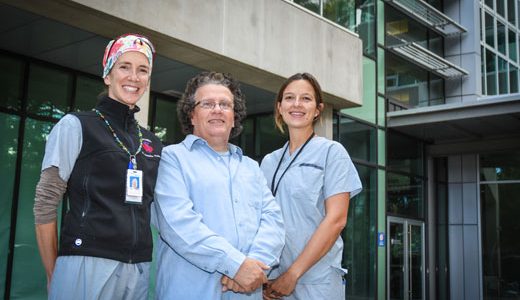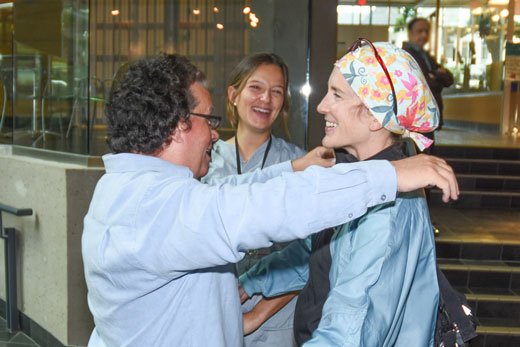Best Christmas ever
In January, Richard Currant was planning his funeral.
The fifty-something Nanaimo resident was suffering from non-alcoholic fatty liver disease. His sister had passed away from the same disease just four years earlier.
“My liver was failing and I was deteriorating rapidly,” he says. “I thought I had maybe three months, and I was advised to get my things in order.”
Today, Richard is happy, healthy and well, eagerly preparing for his best Christmas ever. His remarkable recovery is thanks in part to a Canadian first at VGH.
Personalizing transfusion therapy
Looking back on Richard’s transplant surgery, anesthesiologist Dr. Jacqueline Trudeau says “Richard’s case went very smoothly from both a surgical and anesthetic perspective. His case represents a growing number of liver transplants done without blood transfusion.”
Fewer transfusions reduce the risk of dangerous complications and improve patient outcomes. But, due in part to the limitations of blood coagulation testing, the average liver recipient used to receive up to 10 units of blood during surgery. That number could rise as high as 20.
Not anymore.
VGH is the first hospital in Canada to implement live streaming of whole blood coagulation analysis results from the lab to physicians.

Blood coagulation results are presented graphically, which is more intuitive for clinicians, says Dr. Trudeau.
Using cutting-edge technology known as ROTEM® (short for rotational thromboelastometry), hematopathologist Dr. Tyler Smith and the hematology team at the VGH Laboratory generate graphic depictions of patients’ blood-clotting profiles. The results are delivered to physicians, including those in the Emergency Department, Intensive Care Unit and operating rooms, through a secure website within 15 minutes of testing.
“For patients with complex coagulation abnormalities, ROTEM® has really helped us clarify which blood products are truly needed before, during and after surgery,” explains Tyler. “We’re early adopters of this new technology and part of a global movement to provide personalized blood transfusion therapy.”
An initiative supported by Hematopathology, Anesthesiology, Cardiac Surgery, Transplant Services, Trauma Services and Critical Care, physicians are saying the new technology is changing their practice in a positive way.
“Nobody wants to transfuse unnecessary blood products,” says Jacqueline. “It’s detrimental to patients and a waste of a precious resource. We now have better information to help us make more thoughtful, appropriate transfusion decisions.”
Taking nothing for granted
Back in Nanaimo, Richard is proof positive of the difference made by new transfusion practices and an organ donor’s gift.
“I know it may sound odd, but I talk to my liver. I think of my donor every day,” he says.
“As dark a place as I started, I’m here because the universe put the most brilliant people in place with the gifts I needed, and they offered all of them up to me. There’s not a day I take for granted.”




Gwen Bevan
What a beautiful story! I am so happy to hear that new technology is resulting in better outcomes for patients and more efficient ways of working with the resources we have. And what a sweet man to be thinking of his donor everyday. Thank you for sharing this. Brings a smile to my face.